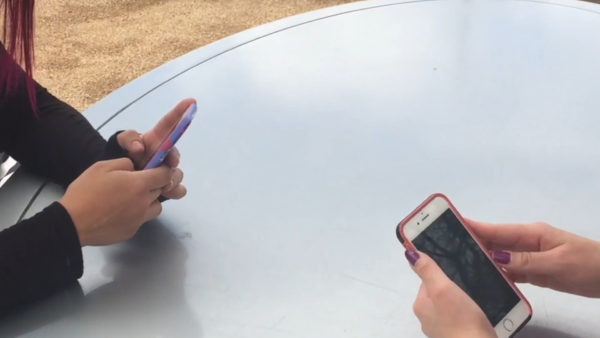A recent graduate out of the University of Texas at El Paso has created an app aimed at connecting international students, study abroad students and travelers from all over the world using real-time demographic and social data.
Doris Llamas, a computer information systems graduate from the University of Texas at El Paso, launched the Awayys app to fill a gap between social networking and the travel industry.
At just 24, Llamas is the founder and CEO of her own company. She grew up in El Paso and attended Baylor University where she had a “vocational crisis,” and could not figure out what it was she wanted to study. Taking this as an opportunity to find herself, she decided that some time away would lead her down the path of discovery.
“I thought that if I went far away on my own, I’d have an opportunity to listen to myself and perhaps discover what I wanted to do for the rest of my life,” Llamas said. “Israel was my first destination, I spent six months there.”
Awayys users may search a city, state, or a whole country. Using specific filters, such as age, gender, nationality, religion, distance and more, consumers can expand their search and grow their social circles.
“The app connects you to users through real-time demographic and social data, allowing you to connect with people your age who are around you,” Llamas said. “The app would be an incredible tool for international students who want to meet locals and get first-hand recommendations from them. It also allows them to search for users around them who are from their same country.”
Awayys is useful to international students, in that it allows them to create a sense of community even when they are far from home. By allowing users to use demographic filters like trips shared, which shows users places where their friends have traveled, students studying abroad can find other users who have visited the particular city or country they are currently in. Awayys also allows users to filter people based on where they are from.
“I wanted to solve a problem for myself since it is something that I designed according to my own needs as a traveler,” Llamas said on her vision for the app. “Over the course of my travels, I identified an existing community of people with similar lifestyles. I wanted to provide them with a platform to network and share information between each other.
Although Llamas initially started the project on her own, it soon became a collaboration among travelers and students. A team of eleven students from universities, such as Baylor, the University of Dallas, Harvard, Rice, Southern Methodist University and the University of Texas at Austin came together to assist Llamas in her venture.
One of Llama’s mentors, Leo Gemoets, Ph.D., associate professor of computer information systems at UTEP, remembers working with her to ensure her idea would come to fruition.
“I believe every student at the University of Texas at El Paso has entrepreneurship in their DNA,” Gemoets said. “Doris is a wonderful model for students to succeed in anything they can dream about.”
He said that he worked with Llamas on developing the app, along with others in the computer science department. They worked specifically on launching Awayys on the street – and making sure Llamas stayed on track to graduate, even while she was hard at work on the app.
 Awayys is currently in the beta stage and is free on iTunes and Google Play for both apple and android users. But after the six-month optimization period, it will consist of a Freemium business model, where the free app will have only basic features and a premium version with more features will require payment.
Awayys is currently in the beta stage and is free on iTunes and Google Play for both apple and android users. But after the six-month optimization period, it will consist of a Freemium business model, where the free app will have only basic features and a premium version with more features will require payment.
Llamas explains that on top of what is now available in beta, the new platform being developed will be more efficient in uniting users while offering unique experiences worldwide. Once optimization is complete in about six months, the official launch of the app will take place.
Word of the app is getting out with help of a controlled growth plan, which connects same-campus students to each other first, followed by an integration of users from campus-to-campus, and finally expanding slowly in order to connect users from different cities across the globe. Llamas explained that this is possible with the help of her colleagues, who have extensive experience on social media.
“The beta testers have loved it,” Llamas said. “We are incorporating the testers’ feedback to the new version.”
Not only is the app useful in connecting people globally, Llamas sees it playing an important role in connecting people throughout the El Paso/Juarez border region. Individuals on both sides of the border can connect to find people with common interests in the cities that surround them, truly making the border a small world of its own.
“I believe that networking is the single most powerful tool for individual and institutional success,” Llamas said. “Having a tool that unites the people across the El Paso/Juarez border will serve to unite the border community.
